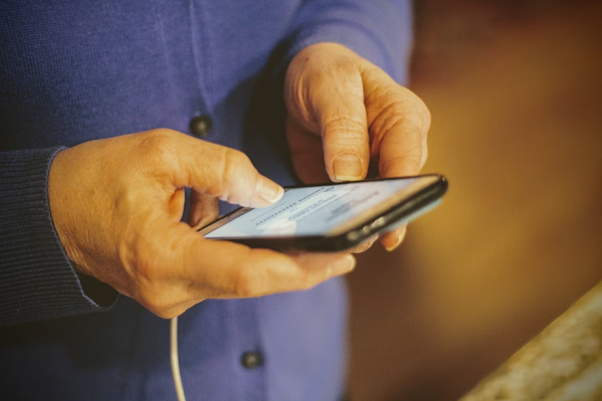So, you have a bad evening: you are anxious and nervous; you are having emotional turmoil and there is no one to support you. You open one of the applications and, lo and behold, you see an AI girl there – an active virtual girlfriend for communication. She does not just appear in the form of text on the screen; she says something nice, asks you about the state of your health, care, and breathing exercises or other insightful questions about your issue. It is at this moment, when even artificial intelligence can hear you, that a feeling of relief may arise. It does not belong to science fiction, that is the reality of today. So how can we quiet little ways that mental health care is being transformed by AI companions such as AI girls?

How AI Offers Ever-Present Emotional Support
The availability is one of the strongest assets of AI: 24/7, non-judging, confidential. You may need them when you find yourself up all night crashing or when you are in crisis at lunch. Koreans have made an analysis in which they revealed that frequent communication with a friendly AI helper decreased loneliness and social anxiety drastically due to its gentle and proactive nature.
This example demonstrates the fact that AI is not simply reactive, but it is the type of first-aid that it can apply in a timely manner, slowing thoughts down, so to speak, a form of first-aid based on established methods, such as grounding, cognitive restructuring, etc.
The Science Behind It
The question might be as follows: Is therapy really possible through software? The answer is yes, it does, in the case of many people (in particular those who have mild-to-moderate anxiety or depression). Technology with cognitive behavioral therapies (CBT) frameworks has demonstrated quantifiable success. As an example, the use of Woebot lowered the depressive symptoms in young adults in two weeks, and Tess app users indicated reduced depressive symptoms in comparison with the control groups.
A 2022 meta-analysis established that when users remain engaged, these tools provide moderate gains to improve mental health. And it is not only sham therapy, Cedars-Sinai introduced the virtual therapist avatars that have been trained in motivational interviewing and CBT, and more than 85% of patients have stated that sessions were helpful, and 90% would prefer taking the sessions again.
Why People Embrace AI for Mental Health
What draws people to AI companions? Several key factors come into play:
- Accessibility & Cost-Effectiveness – AI tools are often free or low-cost and instantly available, offering a lifeline to those on long waitlists, tight budgets, or in underserved regions.
- Reduced Stigma – Many users feel safer sharing deeply personal or embarrassing thoughts with an AI chatbot that offers privacy and zero judgment.
- Personalized Interventions – These systems learn from your conversations, tailoring guidance to your personality, triggers, and communication style.
The result? A personal AI coach who knows what helps you stay calm, motivated, or grounded, just when you need it.
Real-Life Transformation
Online testimonials reflect these benefits vividly. One Reddit user recounted conversations with “Sarah”, an AI companion that grew attuned to their fears and personal history, offering insights no human therapist had provided. Another described how an AI “psychiatrist” from character.ai helped them release deep emotions:
These aren’t isolated stories. They highlight AI’s emerging role as a partner in emotional processing, offering a unique blend of attentive listening and informed reflection.
Acknowledging the Limits
That said, AI isn’t a replacement for human therapists. Experts caution that AI lacks the nuance, deep empathy, and relational bond essential for treating serious issues like psychosis, severe depression, or trauma.
Concerns include:
- Data Privacy Risks – Users share intimate details with AI platforms, raising questions about confidentiality.
- Over-reliance & Isolation – AI may become a crutch, potentially secluding individuals from real human support.
- Algorithmic Bias & Misinformation – AI is only as good as its training data and can inadvertently offer skewed or unsafe advice.
Psychologists stress: Treat AI as a supplement – a smart ally, not a substitute for professional care.
Balancing the Future of Mental Health
The evolution of AI in mental health resembles a bicycle for the mind: a tool that can help you pedal through emotional terrain, but not one that replaces the destination (true human connection and skilled therapy). AI can empower individuals, ease access, and provide in-the-moment support, but it thrives best when tightly integrated into a broader care system.
Cedars-Sinai’s VR therapists, biofeedback-driven tools, and generative-art platforms like Mind Palette show where this integration is heading: immersive, interactive, and deeply supportive.
Feel the Power of AI
But as this future unfolds, it’s crucial to stay cautious: protect privacy, avoid over-dependence, and always preserve the irreplaceable value of human presence and empathy.
In sum, talking to AI can genuinely help, especially for those dealing with anxiety, mild depression, loneliness, and stress. The research supports its efficacy; the stories reveal its power. And while it’s not a standalone solution, it’s an exciting new dimension in mental health care, a friend in your pocket, a guide in the shadows of your mind, and a tool that, with care and integration, could bring profound benefits.
